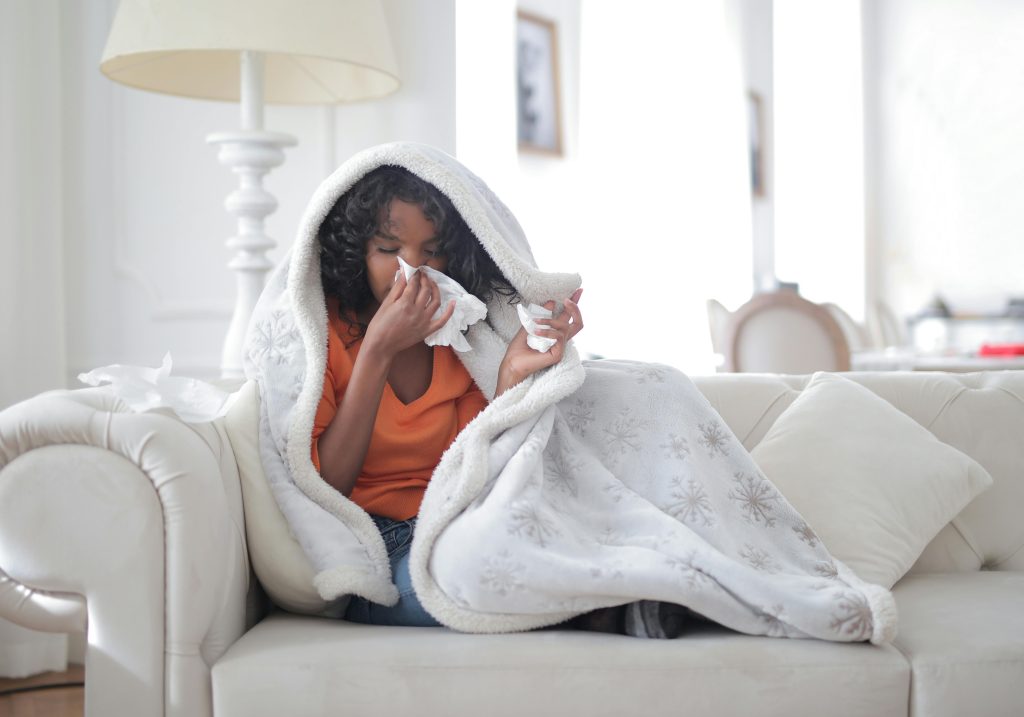by Sebastian Castro
With the winter season in full swing, scientists expect to see an increase in rates of infection, especially of the flu, COVID-19, and RSV, or respiratory syncytial virus.
Dr. Kimberly L. Jeffries Leonard, who serves on the board of trustees at Fayetteville State University and holds a PhD from Howard University, urges the public to exercise caution.
“This is the season for respiratory viruses,” Dr. Jeffries Leonard said.
Dr. Jeffries Leonard explained that intergenerational get-togethers with families put older folks and young children at risk of infection and potentially dangerous symptoms.
“It puts people at risk, especially those that are more vulnerable,” Dr. Jeffries Leonard said.
Dr. Jeffries Leonard encouraged those that aren’t already vaccinated to get up to date on their shots.
“Getting vaccinated is a selfless act,” Dr. Jeffries Leonard said. “You’re not just taking care of you; you’re taking care of everyone you come into contact with.”
She understands concerns about the effectiveness of vaccines but says that even if they don’t necessarily ensure immunity from disease, vaccinations manage symptoms and reduce the spread to those that are most vulnerable.
“They offer the best protection from severe disease, from flu, COVID-19, RSV,” Dr. Jeffries Leonard said. “They’ve gone through extensive testing.”
According to Dr. Jeffries Leonard, immune systems alone are not sufficient to deal with these diseases. She explained that “herd immunity,” where an entire population has a strong resistance to a specific virus, takes a “long” time to achieve naturally. While young adults with strong immune systems can bounce back from sickness, immunocompromised folks can’t.
Dr. Jeffries Leonard shared her own experience with the COVID-19 pandemic. Her grandmother, who was 109 years old, died in a nursing home from COVID-19.
“If you’re going to visit your loved one in a nursing home, keep your mask on,” Dr. Jeffries Leonard said.
According to Dr. Jeffries Leonard, the decision to enter public health was a personal one.
“I wanted to ensure that I had information to keep my family healthy and my communities healthy,” Dr. Jeffries Leonard said. “That’s why I got into public health.”
Dr. Jeffries Leonard recognizes why members of the Black community might have reservations regarding vaccinations.
“I understand that there may be some concern from our communities about health things that have happened,” Dr. Jeffries Leonard said.
She acknowledged the history of racist medical malpractice in the United States, specifically pointing to the example of Tuskegee, where Black men were deceived by the government and denied treatment for decades, fostering a deep mistrust in the healthcare system within the Black community.
However, Dr. Jeffries Leonard stressed that she wants the community to trust these vaccines.
“Vaccine development is not the same as the other stuff that we have had to deal with historically,” Dr. Jeffries Leonard said. “These vaccines are for everybody. They’ve been tested and tested and tested.”
She also pointed to examples of Black scientists that were involved in the creation and testing of vaccines, shouting out Dr. Kizzmekia “Kizzy” Corbett, a young Black viral immunologist who played a central role in developing the Modern Covid 19 vaccine.
“There have been people who look like us who have been working on these vaccines because our communities need them,” Dr. Jeffries Leonard said. “There’s no evidence that there’s any infertility or cancer because they’ve been tracking this for a very long time.”
She recommends practicing “common sense healthcare,” which includes social distancing, outdoor get-togethers when possible, washing hands and masking up.
“One of the things that really does prevent the spread of these viruses is putting a mask on,” Dr. Jeffries Leonard said. “It’s okay to wear masks if you’re comfortable with that.”
“We gotta take care of others,” Dr. Jeffries Leonard said. “Taking care of ourselves by getting vaccinated and wearing masks helps us take care of others.”


This post gave me the clarity I needed, thanks!